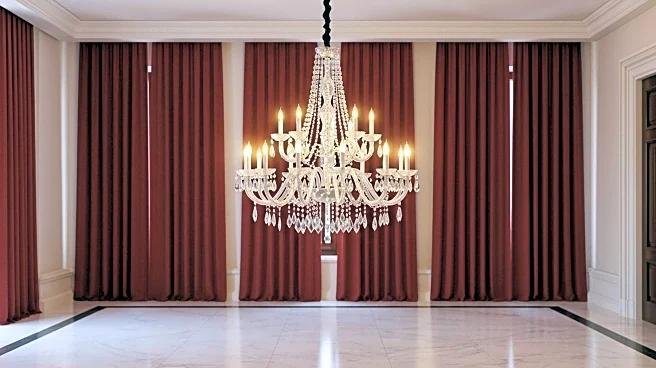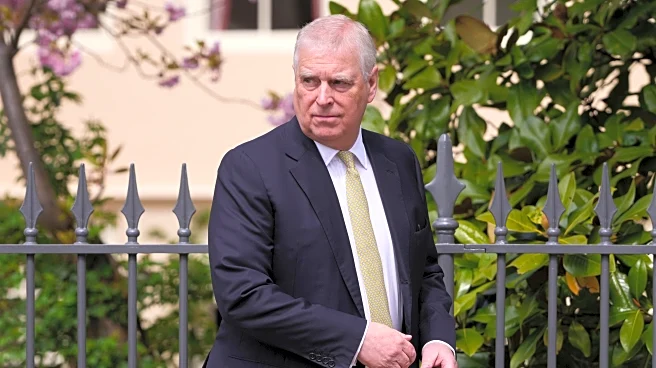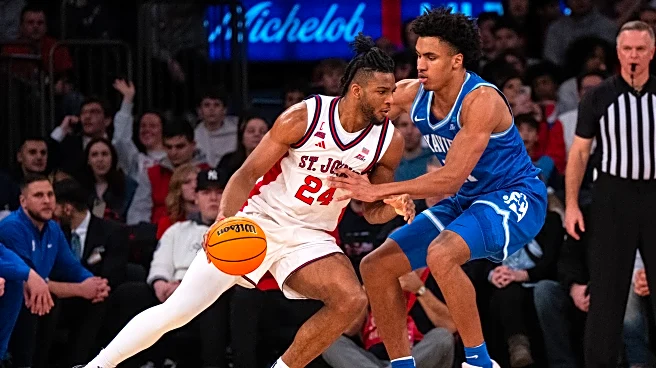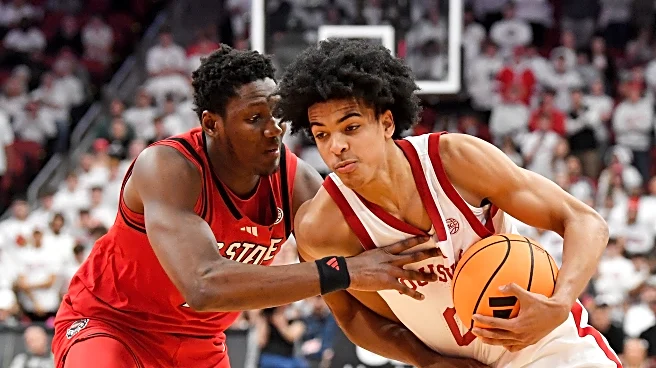What's Happening?
In August 2025, the most expensive home sales in the United States were marked by significant price reductions, reflecting broader market trends. A Beverly Hills mansion, previously owned by billionaire Rick Caruso, sold for $47.5 million after a $15 million price cut from its original asking price of $56.9 million. This sale was the highest in the country, followed closely by a property in Greenwich, Connecticut, which sold for $43.5 million after a reduction from its initial $55 million price. Other notable sales included properties in Florida, with prices ranging from $37.5 million to $27.6 million. These transactions indicate that even the luxury market is experiencing similar challenges as the general housing market, such as price reductions due to high demand and limited inventory.
Why It's Important?
The trend of price reductions in luxury home sales is significant as it highlights the broader economic pressures affecting the real estate market. Despite the wealth of buyers in this segment, the need for price cuts suggests a cooling market, potentially influenced by factors such as interest rates and economic uncertainty. This could impact real estate investors and developers, who may need to adjust strategies to accommodate changing buyer expectations. Additionally, the luxury market's response to these pressures may serve as an indicator for future trends in the general housing market, affecting home values and affordability across the country.
What's Next?
As the luxury real estate market continues to adjust, stakeholders may anticipate further price reductions or shifts in buyer preferences. Developers and real estate agents might focus on marketing strategies that emphasize value and exclusivity to attract high-net-worth individuals. Additionally, economic factors such as interest rates and inflation will likely continue to influence market dynamics, potentially leading to more cautious investment approaches. Observers will be watching for any signs of stabilization or further volatility in the coming months.
Beyond the Headlines
The price reductions in luxury home sales may also reflect broader societal shifts, such as changing attitudes towards wealth and consumption. As economic pressures mount, even affluent buyers may prioritize value and investment security over prestige. This could lead to a reevaluation of luxury as a concept, influencing cultural perceptions and consumer behavior in the long term.










